‘It was obviously shocking in the best way possible’: Patagonia pledges profits to the Earth
By juliana cao on October 5, 2022
‘It was obviously shocking in the best way possible’: Patagonia pledges profits to the Earth
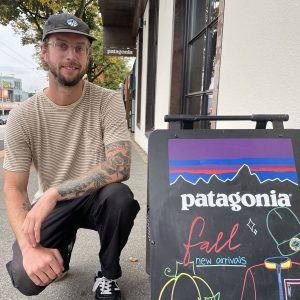
Zac Elik, manager of Patagonia’s Vancouver store (Marc Fawcett-Atkinson/National Observer)
October 3, 2022
Dr. Kai Chan, CSFS Associate and professor in the Institute for Resources, Environment and Sustainability and the Institute for Oceans and Fisheries, commented on the donation of Patagonia to an environmental non-profit, including similar actions in the company’s history.
Read More | No Comments
By juliana cao on October 5, 2022
The fate of your food rests with Canada’s native bees
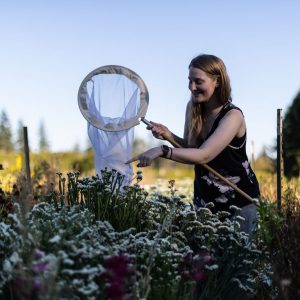
Jennifer Lipka catching bees at the UBC Farm (Jesse Winter/National Observer)
October 3, 2022
Jennifer Lipka, an MSc student in CSFS Associate Juli Carrillo’s lab and the Faculty of Land and Food Systems, discussed her research into how native bees are impacted by changes in land use, climate change and pollution.
Read More | No Comments
By juliana cao on October 5, 2022
This farmer-turned-biologist wants to put Quebec’s truffles on the culinary map
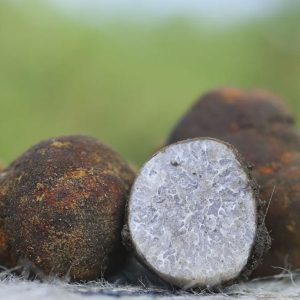
(Christinne Muschi/The Globe and Mail)
October 3, 2022
Shannon Berch, associate member in the Department of Botany, discussed growing truffles at the UBC Farm.
Berch leads the Truffle Establishment in British Columbia, a project at the Farm which focuses on farming Mediterranean black winter truffles in a symbiotic relationship with English oak trees.
Read More | No Comments
By juliana cao on October 5, 2022
The flower industry has a thorny environmental problem — and plastic is just part of it
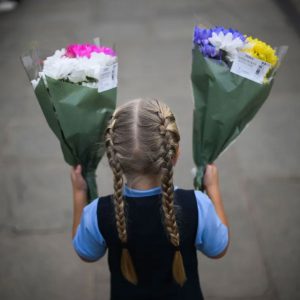
(Daniel Leal/AFP/Getty Images)
October 3, 2022
Dr. Kai Chan, CSFS Associate and professor at the Institute for Resources, Environment and Sustainability and the Institute for the Oceans and Fisheries, discussed the environmental impacts of the industrial farming of flowers.
“Depending on where the flowers come from, there’s industrial farming and the effects of pesticides, fertilizers or water-hungry greenhouses to consider,” said Dr. Chan.
Read More | No Comments
By juliana cao on September 21, 2022
How a Garbage-Bin War Schools Humans and Birds
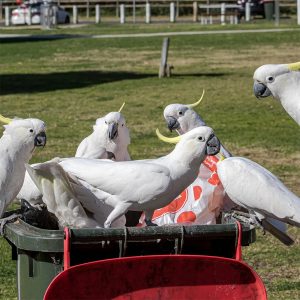
Sulfur-crested cockatoos enjoying a feast in Sydney, Australia (Ken Griffiths/Alamy)
September 21, 2022
Sulfur-crested cockatoos are trash-can bandits in the suburbs of Sydney, Australia. Humans use tools to protect their bins, and the birds then go the extra mile to break in.
The human-bird innovation arms race is “a really exciting idea,” says Dr. Sarah Benson-Amram, Departments of Forest and Conservation Sciences and Zoology. “It’s really wonderful to see data showing that likely this is what’s happening.”
Dr. Benson-Amram leads the Urban Raccoon Project at the UBC Farm.
Read More | No Comments
By juliana cao on September 16, 2022
Food Insecurity Affects Nearly 1 in 6 Canadian Households
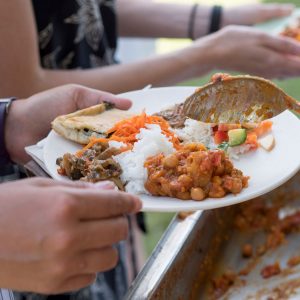
September 16, 2022
“We know that food insecurity takes a major toll on people’s physical and mental well-being and adds significant costs to our healthcare system,” says Dr. Jennifer Black, CSFS Associate and Associate Professor of Food, Nutrition, and Health.
In her recent research, Dr. Black found that Canadians who had concerns about not being able to meet their food needs during the pandemic were also more likely to report serious mental health challenges.
Read the full article at Medscape.
Read More | No Comments
By juliana cao on September 8, 2022
B.C. researchers tout promising progress on oral insulin tablets

UBC researcher Yigong Guo holds an oral insulin tablet that is currently being tested (UBC/Karen Lee)
September 8, 2022
Researchers led by CSFS Associate Dr. Anubhav Pratap-Singh have developed oral insulin tablets as a replacement for daily insulin injections.
“These exciting results show that we are on the right track in developing an insulin formulation that will no longer need to be injected before every meal, improving the quality of life, as well as mental health, of more than nine million Type 1 diabetics around the world,” Pratap-Singh comments.
Read More | No Comments
By juliana cao on September 1, 2022
Lawns gone wild: How being lawnmower lazy boosts biodiversity
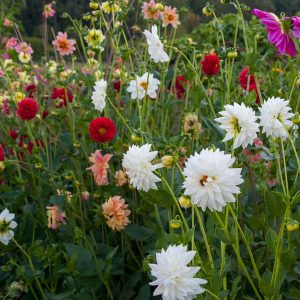
September 1, 2022
“We need to think more about resource use and the stuff we put on the ground, and think more about biodiversity. We’ve lost many, many of our pollinators because of that obsession with the bowling green type lawn.”
Forestry professor and CSFS Associate Dr. Terry Sunderland gave comments on the benefits of mowing the lawn less frequently.
Read More | No Comments
By juliana cao on September 1, 2022
Artificial intelligence could make our food safer — but at what cost?
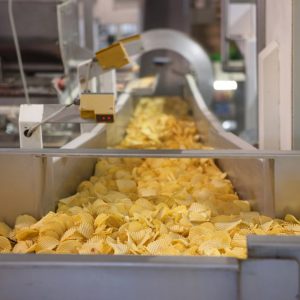
Potato Chip Production (MediaProduction/E+/Getty Images)
September 1, 2022
A study led by Land and Food Systems Dean and professor, Dr. Rickey Yada, looked into how artificial intelligence can help make our food supply safer.
Through various tools such as image analysis and product scanning, AI’s data-driven approach can help food producers identify problems before they enter the consumption stage, the study states.
Read More | No Comments
By juliana cao on August 18, 2022
How raccoons became the ultimate urban survivors
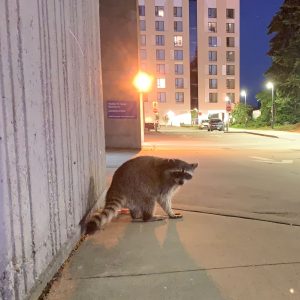
UBC Urban Raccoon Project (Hannah Griebling)
August 18, 2022
Researcher Dr. Sarah Benson-Amram, Department of Forest and Conservation Science/Zoology, Faculty of Forestry and Science, discussed her research that looks into the intelligence of raccoons.
Benson-Amram leads the UBC Urban Raccoon Project, a CSFS project that uses wildlife cameras to estimate abundance and monitor the behaviour and activity of raccoons at the UBC Farm.
Read More | No Comments









